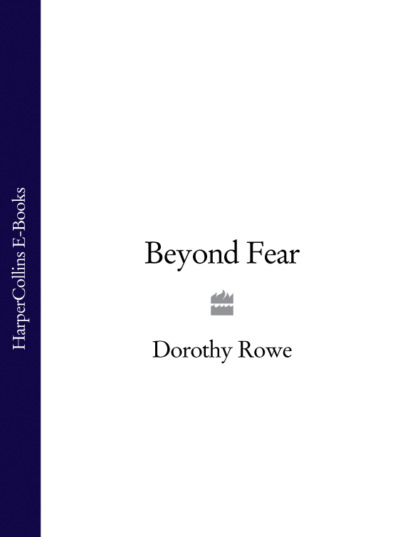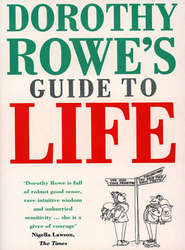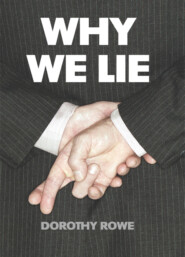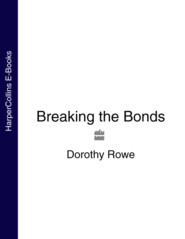По всем вопросам обращайтесь на: info@litportal.ru
(©) 2003-2024.
✖
Beyond Fear
Автор
Год написания книги
2018
Настройки чтения
Размер шрифта
Высота строк
Поля
(#litres_trial_promo) Such people feel, not joy at being alive, but fear, fear that they have done something wrong, for they ought to have died like their companions, fear that they have been given something they do not deserve and that they will be punished for holding on to it or that it will be suddenly taken away from them. They may have survived, but death as retribution is imminent.
Rose’s question ‘Why me?’ was that of an ordinary woman nearing sixty who had worked diligently all her life, looking after her family, being competent in her office work, enjoying a quiet life in a country town, never expecting that her life would have any other significance than the pattern of the lives of her family and friends.
Then suddenly she was flung, not just across a road in the path of oncoming cars, but into the vast mysterious universe of being. Why me? In all this vastness, why me? Alone in all that vastness, she trembles with fear. Has she been saved for some purpose? Is there some pattern, some Grand Design, in which she has to play a significant role? If there is, why is she, an ordinary woman, chosen to play it? Will something be asked of her that she cannot perform, where she will fail and be punished for her failure? Has the Grand Designer got it wrong? Was she saved by mistake? Has she been given something that she doesn’t deserve? Should she be dead, and some little baby, now dead, be alive? Or is there no design, just a random universe where some people live and others die, with no justice or fairness or reward for goodness and punishment for badness? Just randomness, chance without significance, life without meaning? Is ‘Why me?’ a question flung at the stars, and the stars shine coldly back with no answer?
To contemplate the significance of one’s life against the limitlessness of space and the infinity of time is to create a powerful sense of awe and dread. Sometimes this is a very sensible thing to do. It certainly helps in keeping a sense of proportion about our own anxieties and ambitions, but at other times such a contemplation brings a sense of powerlessness and insignificance which can be quite overwhelming.
We all first had this experience when we were children and learning about space and time. By then we had all come across death through the demise of grandparents or pets, or stories on television, or simply the unspoken threat of death in the instruction ‘Be careful crossing the road’. As young children we puzzled over the problem of what death is and we arrived at an answer.
Over the centuries of human life, death has been given many meanings. Yet in all, such explanations fall into two categories. Death is either the end of the person’s identity or it is a doorway into another life. ‘Another life’ can be described in a multitude of ways, but whatever the description given, it implies that some significant part of the person goes on existing after death.
The curious part of arriving at an answer to the question ‘What will happen to me when I die?’ is that even though we may use scientific methods in seeking an answer (‘Has anyone come back from death to tell us about it?’ ‘Are there such things as ghosts?’ ‘How many people could fit in heaven?’) the answer we arrive at is in terms of meaning. We discover a meaning for death which then gives meaning to our life. We say, ‘There has to be something after this. Otherwise, what’s the point?’ or ‘This life’s all we’ve got. It doesn’t make sense, the idea of an afterlife.’
In giving death a meaning, the end of identity or the doorway to another life, we fix the purpose of our life.
If death is the end of your life, then to be able to accept your death you have to live your life in a way that you feel is satisfactory. There are a multitude of ways of seeing life as satisfactory - by becoming rich, or famous, or having a good marriage, or having children, or having done most of the things you wanted to do, or just getting by without too much trouble.
If you see death as the end of life and find yourself failing to make your life satisfactory in the way that you want it to be, you feel fear. Death looms menacingly, you see time running out, and you feel the pain and guilt we all feel when we know that we have wasted our talents and thrown away our opportunities.
If you see death as a doorway to another life you are immediately confronted with the problem of justice. If the afterlife means that there is the possibility of going somewhere better than this present world with its troubles and pain, then our likely questions are ‘Does everyone go there? Is it fair that everyone goes somewhere better irrespective of the kinds of lives they lead? Should Hitler enjoy the same kind of afterlife as Mother Teresa?’ The answer that most people give to these questions is no. So the idea of an afterlife, whatever form it takes, contains some notion of justice. If you see your life as a doorway to another life you then feel that you have to achieve a certain standard of goodness and excellence which will allow you entry to a better life. When you see yourself as failing to meet the standards and rules of life beyond death’s doorway, you feel great fear.
(#litres_trial_promo)
Seeing death as the end of existence or seeing it as a doorway to another life are ways of trying to understand, not just our own life, but our life in relation to space and time. When we contemplate the vastness of the ocean or the immensity of the heavens, we feel great awe, a mixture of respect, fear and incomprehension. To reduce our fear and increase our understanding, we develop theories to explain, in the words of the Hitchhiker’s Guide to the Galaxy, ‘Life, the universe and everything’.
(#litres_trial_promo)
Some of us frame our explanation in scientific terms, and are left with puzzling things like curved space, a flat universe, black holes, and the question of whether there is life in other parts of the universe. A scientific description of life, the universe and everything is just as strange as a metaphysical or magical description. It gives rise to many fantasies, as the popularity of science fiction shows. In the end, a scientific explanation of life gives neither comfort nor security. To hold such beliefs and not be afraid requires courage and the ability to tolerate much uncertainty.
Not everyone can manage this, and so they turn to metaphysical or magical beliefs in order to find greater comfort and security. The scientific view of life and the universe sees us humans as just a small part of a vast complexity which will go on being itself with no more special regard for human life than it has for asteroids, atoms and the fifth dimension. Metaphysical and magical views of life place human beings at the centre of the universe where everything that happens relates to us and where we can influence vast forces and powers by our prayers, rituals and virtues.
Holding beliefs which place us at the centre of the universe under the control of a beneficent power can create a sense of security, and increased pride and self-confidence. Knowing that God loves you, or that your ancestors are watching over you, or that you are party to the forces of goodness which rule the world, can make day-to-day living simple and secure. However, the trouble is that everything in life has both good and bad implications. You win a lot of money in a lottery, which is good, and then all your impecunious, greedy relatives want to share your good fortune, which is bad. As an adolescent you look forward to being an independent adult, which is good, but as an independent adult you will have no one to look after you, and that can be quite bad. In the same way, our beliefs about the nature of life and death, whatever they may be, have good and bad implications. To rest secure in God’s love, or in the approbation of our ancestors, or in the power of the forces of goodness, we have to live our lives following certain rules, and if we fail to follow those rules then we are in great danger. The power which we perceived as protecting us can be turned against us and can threaten us with death and damnation.
In a group discussion about the experience of depression one woman described how when she was badly depressed she would wake during the night with the conviction that she should check whether her children were safe in their beds. She would get out of her bed to do this, but as she entered the hallway, all familiarity vanished and she found herself faced with a vast black hole. She was sure that if she took a step forward she would plunge into the hole, so she would stand there frozen with terror. The group discussed this in terms of how easy it is in the dark to lose contact with the most familiar of surroundings, and how the image of being depressed (frequently expressed as falling down into a bottomless pit) is experienced as something real and palpable. The woman listened to this and then said, ‘I think that your feelings summon up powers - good powers or evil powers - out there. If you feel terrible, inside you, then you somehow draw this terrible blackness towards you. If you feel good and happy, then you draw this goodness out there to you.’
This woman’s belief in supernatural powers was a comfort to her when she was happy, because happiness, she believed, attracted the benevolent power, but her belief also harmed her because when she was depressed she felt that she attracted the malevolent power.
We may try to deal with our fear of death by imagining that it will not occur for a long, long time. But if that is the case we have to travel through old age to meet death, and the prospect of old age can be full of terrors. No one likes the idea of becoming deaf, weak sighted, forgetful, frail and incontinent. No one wants to be treated like a foolish child by patronizing doctors and nurses and disrespectful relatives. Yet that is the fate which awaits many of us, and no matter what plans we may make to avert such a fate - by looking after our health, or making financial provision for a place in a superior nursing home, or threatening our relatives with guilt and retribution if they do not look after us properly - we can still be frightened.
Sometimes our fear of old age is more than just a fear of the practical problems it creates. Sometimes there is a magical dimension to our ideas about youth and old age.
Sylvia came to see me distraught after her husband of fourteen years had left her for another woman. All her conversation was about him. If her description of him was in any way accurate I would not have given him houseroom, but Sylvia desperately wanted him back.
They had met and married when she was thirty-four and he was twenty. I asked her what had made her fall in love with him.
‘Chemical reaction. He made me feel so good. Young. Some women don’t get older, do they? Like in those films, you’ve seen them, haven’t you, where there’s this woman and she’s young and very beautiful but really she’s hundreds of years old, and then something happens and she gets old, real old, suddenly, and her body starts to break up, ugh, it’s horrible, and she just crumbles up and her body sort of falls in on itself.’
If this is what she feared old age would be, then it was no wonder that she wanted to hang on to a man who had the power to preserve her, even though he did beat her when he got angry.
When I was researching for my book Time on Our Side
(#litres_trial_promo) I asked a large number of people how they felt about time passing and growing old. All agreed that growing old was frightening, but what made growing old an experience to be feared was different for each person and related to how they saw themselves. Those who had built their identity on achievement feared the time when they could achieve nothing. Those who had built their identity on being needed by others feared being of no use. Those who had built their identity on their sexual attractiveness or sexual prowess feared the fading of their beauty or their loss of vigour.
What people saw as the beginning of the descent into old age depended on how old each person was. People in their twenties saw thirty as the peak of their life, and after that was nothing but decrepitude and decay. People in their thirties saw forty as the turning point, people in their forties saw fifty as the turning point, and so on. I have now turned seventy. Old age, I know, starts at eighty.
Old age does have some actual deficits. Being ill in whatever form is no fun, and we live in a society where old people are not valued, except by politicians when they need the pensioners’ vote, but most of our fears about growing old arise from our ideas about old age. Fearing being ill or losing our physical and mental capacities is bad enough, but if we add to those fears our own prejudices about old people, if we see old people as being ugly, stupid and of no importance, then old age becomes something we dread. However, we are free to change our ideas and thus reduce our fears.
Those of us who enjoy a relatively serene old age have certainly changed our ideas. When we were young many things mattered enormously to us. Now we know how little really matters, but we concentrate on that little which is of immense importance to us, be it those we love, or music, or stories as told on radio, television or film, or simply our garden.
The serenity I enjoy can be interrupted when a chronic lung disease, bronchiectasis, a legacy from childhood, flares up and brings me low. Then I feel frightened, but at the same time I am ruthless in a way I was not when younger in protecting myself from too many demands on my strength. I can achieve this easily because one of the ideas I have discarded is that I must work hard to be good, because no matter how good I am it is never enough. Now, if occasionally I am good, it is solely because it pleases me to be so.
Fear of Not Being Good Enough (#ulink_d0d39778-3543-584a-a0cb-5ef4f70d5312)
When we came into the world as babies we were quite pleased with ourselves and did whatever we wanted to do. We slept when we were sleepy, cried when we were hungry or uncomfortable, and, when offered a nipple, sucked only if we wanted to suck. We had no notion of good or bad. We just were. Then society stepped in and said, ‘This won’t do. You are not satisfactory as you are. You have to be different.’
This all came as a terrible shock to us. We discovered that we were not masters of our own universe. There were greater powers out there and they were insisting that we had to be what they wanted us to be. We had to eat when they wanted and not just when we were hungry. We had to empty our bowels and bladder at the time and place they wanted and not just when we felt the need. We resented this interference, but we knew that the powers that demanded this from us were also the people on whom we depended for survival, and so we acquiesced. We became obedient, and, even more than that, we accepted our family’s definition of us as not being good enough and needing to improve.
Having accepted this as a child, we moved into adult life fearing that we were still not good enough and ready to react with shame and guilt whenever some parental figure chided us for not doing well enough. The editor of Good Housekeeping saw nothing wrong with writing, ‘The other visual treat is the second in our series of Norman Parkinson spectaculars photographed in Tobago. This time it’s summer evening clothes - silky, slinky, sexy numbers. The models look wonderful, very Fifties, very Parkinson and should inspire many of us to take stock and try a little harder.’
(#litres_trial_promo) This was written in 1985, but women’s magazines have not changed, except to increase the range of matters in which women must try harder. It is not enough for a woman to look beautiful and wear beautiful clothes. She must also have a successful career, have a great social life, and be the perfect mother, cook and lover. Women readers react by making an even greater effort to lose weight or else sink deeper into a feeling of inadequacy and despair.
Men do not escape this sorry state of forever trying to do better to justify one’s existence. They have, in some way, to ‘make it’, and when they do not, or when what they have ‘made’ is taken away from them, they become very frightened. Some young men set themselves the goal of having ‘made it’ by the time they are thirty, and so, if they fail, enter their thirty-first year in a state of rage and despair. Others set the vital age at forty, and when the failure to be rich and famous combines with a lessening of sexual performance, they sink into depression, or seek denial in alcohol or in the arms of a much younger woman. Forty is indeed a dangerous age.
(#litres_trial_promo)
When we were small babies we had no concept of ourselves as separate entities. We were contiguous with the rest of our world, which presented itself to us as a continuously changing phantasmagoria. Then, by about eight months, most of us made that curious transition to the belief that what we saw was not a display of an infinite range of spectacles, coming fresh to our eyes every moment, but a limited range of spectacles which came and went and then returned. We acquired the understanding that we did not have an infinite number of mothers but just one who came and went and then returned and who was somewhere else when we could not see her. When a favourite toy disappeared, we had some idea of where to look to see it reappear. Making things disappear and reappear became a great delight as we rejoiced in our power to control our universe. We were not always successful at this. Sometimes Mother disappeared and did not reappear, no matter how hard we tried to get her back.
With the belief that objects go on existing even if they are out of sight came the understanding that if objects do this, then it is worth the bother of having some sign that stands for them when they are out of sight. There is no point in having a system of signs if there is an infinite number of things in our universe and their appearance is never repeated, but if events are repeatable then we may as well have some sort of language which we can use in reference to them. So babies who acquire ‘object permanence’, as Piaget called it, go on to acquire language.
As we went through this extraordinary process, something which seems to be to a large extent peculiar to the human species, we were learning that our world consisted not just of ourselves but of ourselves and other objects. Some of these objects were very important to us, especially our mother, in whose warm and loving gaze we bathed in ease and delight. Then one day, when we were absorbed in some activity, we discovered this loving gaze had vanished and had been replaced by something cold and rejecting. Suddenly we were wrested out of the state of being ourselves and we became an object in another person’s eyes, an object of disgust and contempt. We were exposed, vulnerable and frightened. We had discovered shame.
Few of us can remember our first experience of shame, but we know when a small child has discovered it. The child ceases to be frank and open in all situations and to all people. He squirms and hides his face. If he does not look, then perhaps no one will look at him.
Experiences of shame which end with affirmations of love and reconciliation - a good cuddle - can be extremely helpful to the small child who is in the process of creating his sense of being a person, but when there are too many such experiences, or when such experiences never end with affirmations of love and reconciliation, the child can be left with the belief that he is, in his very essence, bad and unacceptable. Shame is about our identity, what kind of person we are, and when we are small and having the world defined for us by our parents, then if we are shown over and over again that we are unacceptable, that we should be ashamed of ourselves, we come to believe that this is one of the facts of the universe, as immutable and unchangeable as the pattern of night and day. As we get older such a belief about ourselves can be confirmed again and again by other events.
Margaret could not bear to be touched. She could not bear to be alone, but when she was with people she could not bear them to come too close. When she first came to see me she told me that she knew she was a bad person. She had known this ever since she was a small child. She knew that she was bad through and through. She spoke of herself as a child without any sympathy or concern, because, as she told me when I asked, she did not deserve any. She said that as a child she had done something terrible but she would not tell me what it was. It was so bad that the children in her street had been forbidden to play with her. If she told me what it was I would see how bad she was and then I would not want to have anything to do with her.
This was the theme of our meetings, every fortnight for more than two years. She would sit, head down, saying nothing, or speaking so softly that I could not hear what she was saying. She wore glasses which darkened in the light, but when I eventually challenged her on this she changed them to lighter ones so I could at least see where she was looking.
Again and again she would say, ‘If you knew what I was like you wouldn’t want to know me.’ Sometimes I would mock her gently, saying, ‘That’s right, I’d throw you out - tell you never to darken my door again.’ But most times I would say, ‘That’s just how you feel about yourself.’
For the first year she resisted fiercely my idea that no one is intrinsically bad but that we can learn through what happens to us to experience ourselves as bad. Then she started to experiment with this idea. She would say to me, ‘I say to myself, “Margaret, you’re all right,” but it doesn’t work.’
She found our sessions together very painful. Silences forced her to writhe in embarrassment and say, ‘I don’t know what to say.’ If I had to travel it caused her tremendous anxiety. When I discovered that she was one of those worriers who believe that worrying about something prevents it happening, I would ask her to be sure to worry about me when I was away and I would be sure to be safe. Postcards from me in faraway places with the message ‘Keep worrying’ would make her laugh, but still she worried that I might leave her.
One day Margaret risked telling her friend Sue about a childish misdemeanour about which she was very ashamed. Sue surprised her by not rejecting her. Margaret told Sue how her schoolfriend Betty had given her twopence to mind but she had spent it. Once she had told Sue about this, and how ashamed she had been when her act had been discovered, she found that the memory of this deed and the shame which accompanied it were not so painful.
Now she wanted to risk telling me about the greatest crime, the most shameful, terrible deed. But this was not easy. She looked at the clock and said, ‘It’s time to go.’ It was lunch-time, when I had planned to do some shopping, but I sat still and silent. Such a moment for Margaret might never come again.









